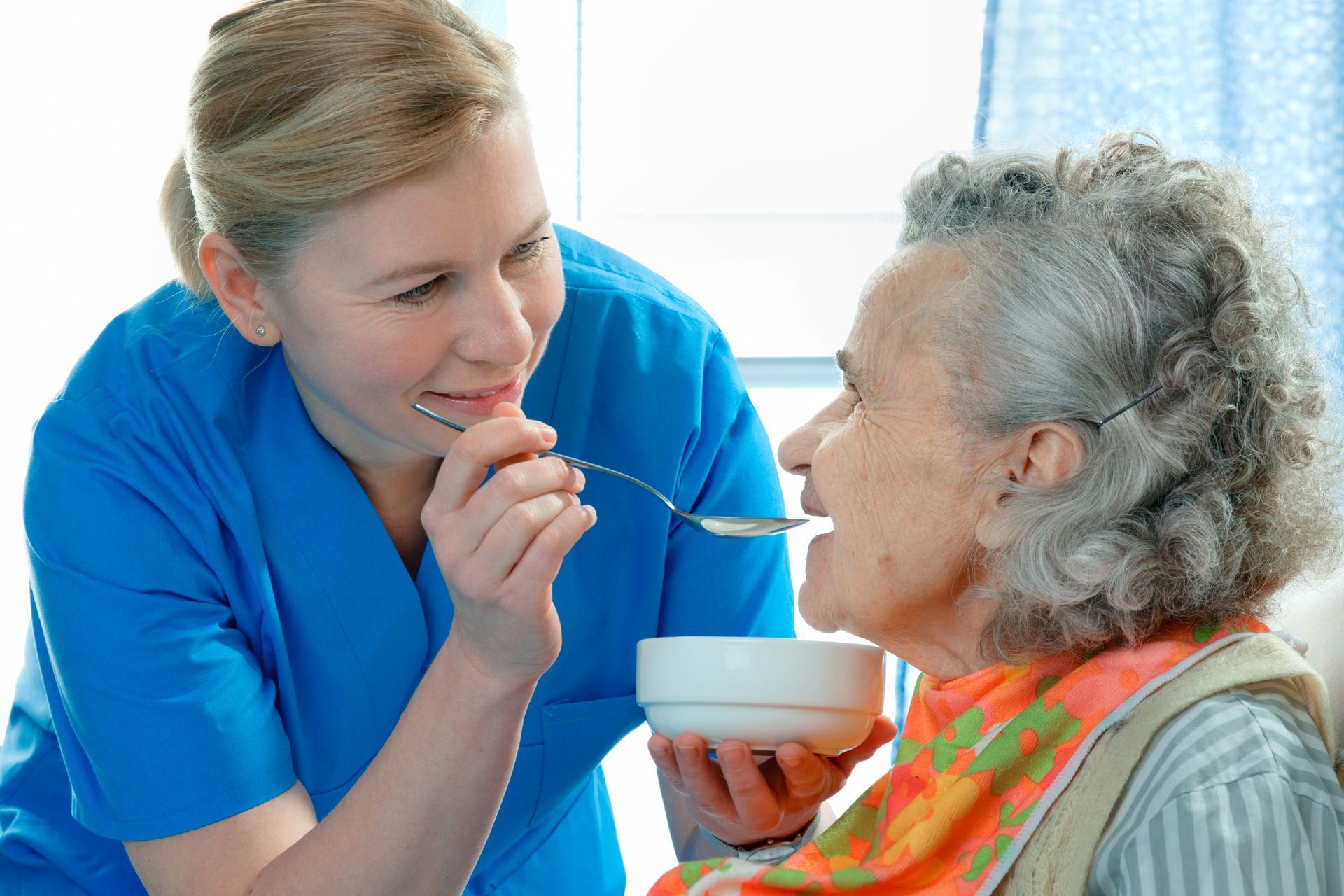Get in touch
555-555-5555
mymail@mailservice.com

April 25, 2023
You want what’s best for your elderly loved one who would rather age at home than in a nursing facility. After all, this is a much more desirable option for many seniors who would like to stay in familiar surroundings and have one-on-one attention and companionship from a caregiver versus being among many other clients in a nursing home setting and not get the same individualized attention. Once you decide to hire an in-home caregiver, you will likely have plenty of questions, and among them is wondering what level and frequency of services would be appropriate for your loved one. What to Expect During an Initial Consultation with an In-Home Care Agency The level of service and how often your loved one should have a caregiver in their home is not a “one size fits all” answer. This is a personal, often subjective determination, and one that can be discussed during an initial consultation between the client’s family and a client care supervisor where the client shares important introductory details about their loved one (the prospective client) and what their needs are. During this call, you’ll be asked questions that will help the client care supervisor develop an individualized care plan that is unique to your loved one’s lifestyle and needs. This plan may shift while their care and happen at any point in time as necessary. Some of the questions you will be asked about your loved one on the initial call with the in-home caregiving agency may include: 1. How much assistance do they need with mobility? 2. Can they drive or do errands on their own? 3. Are they able to cook, clean, groom themselves, and take medication independently? 4. Do they have an injury or illness that requires ongoing or constant care? 5. Does the prospective client want companionship, or do they need more intensive services? 6. Are they at increased risk of falling and hurting themselves? 7. Do they have any degenerative illnesses, such as dementia or Parkinson’s disease? 8. Would My Loved One Benefit from Companion Care a Few Times a Week? You may want to request companion care for your loved one if they require elder care at home yet still maintain some level of independence. Many seniors love the opportunity to socialize with an in-home caregiver, who at the same time, can provide beneficial assistance with home upkeep, meal prep, and other tasks as needed. Most importantly, the caregiver offers engaging, enriching companionship that many seniors sorely lack in their everyday lives – something that can negatively impact their wellbeing and ultimately cause physical and mental decline. Companionship care is the perfect way to begin “aging in place” services and have the occasional in-home caregiving assistance your loved one may require while they are still of relatively sound mind and body yet would prefer some help with minor tasks. This highly requested service makes your loved one’s life easier, safer, and more rewarding as they continue to age in place. How Often Should I Hire In-Home Respite Care for My Elderly Loved One? If you are your loved one’s primary caregiver, you have taken on an admirable yet demanding role that may feel, both physically and mentally. Luckily, help is at hand in the form of respite care. This form of assistance can be periodic, short-term, ongoing, or even around-the-clock, depending on your wants and needs. Many circumstances would call for respite care and when you might want to look into an in-home caregiving agency for skilled professional help so you can have the peace of mind that your loved one is in good hands while you attend to other responsibilities in your life. When Is 24-Hour In-Home Caregiving Appropriate? You may want consistent, reliable care for your loved ones if they have a lifelong, degenerative illness and cannot be left alone due to a lack of independence. Signs they could benefit from an increased level and frequency of care could include frequent falling injuries, being incontinent, wandering, increased forgetfulness, or having a decline in personal hygiene. Around-the-clock care may seem like it would take away your loved one’s independence, but in fact, it’s just the opposite, as it helps them re-engage with their world in a more meaningful way. Caregivers can assist your loved one with mobility, taking medication, running their errands, light housekeeping, help with grooming and personal hygiene, assistance with toileting, meal planning and preparation, and companionship. Most of all, they provide peace of mind for the family members.

April 11, 2023
Having a pet at home can bring love and joy into the life of pretty much anyone who has one. They also are beneficial because they encourage physical activity and provide their owners with a sense of purpose. Studies show there are many advantages for seniors who have a pet at home: improved mood, increased motor skills, lower blood pressure, and companionship. However, not every elderly adult is suited to have a pet in their home especially if they are unable to meet the pet’s needs or if the challenges of proper care become too much for seniors with cognitive or physical limitations. 3 Signs Your Loved One Shouldn’t Have a Pet Anymore: 1.The home smells like pet waste: If the space where the pet resides smells like urine or feces, indicates that your friend or family member isn’t letting their dog out enough or cleaning their cat’s litter box often enough. 2.The elderly adult seems forgetful: If you notice that your loved one isn’t taking care of themselves or has difficulty completing everyday activities, it may be a good idea into checking whether their pet is being taken care of adequately. 3.Your loved one has mobility challenges: Advanced age often leads to progressive mobility challenges. Pet ownership means the owner must be able to perform tasks like walking a dog, changing their cat’s litter box, as well as making sure the pet isn’t being neglected in any other way.
© 2025
One Life Home Health Care
Site by Blue Fox Designs
© 2025
One Life Home Health Care | Site by Blue Fox Designs

